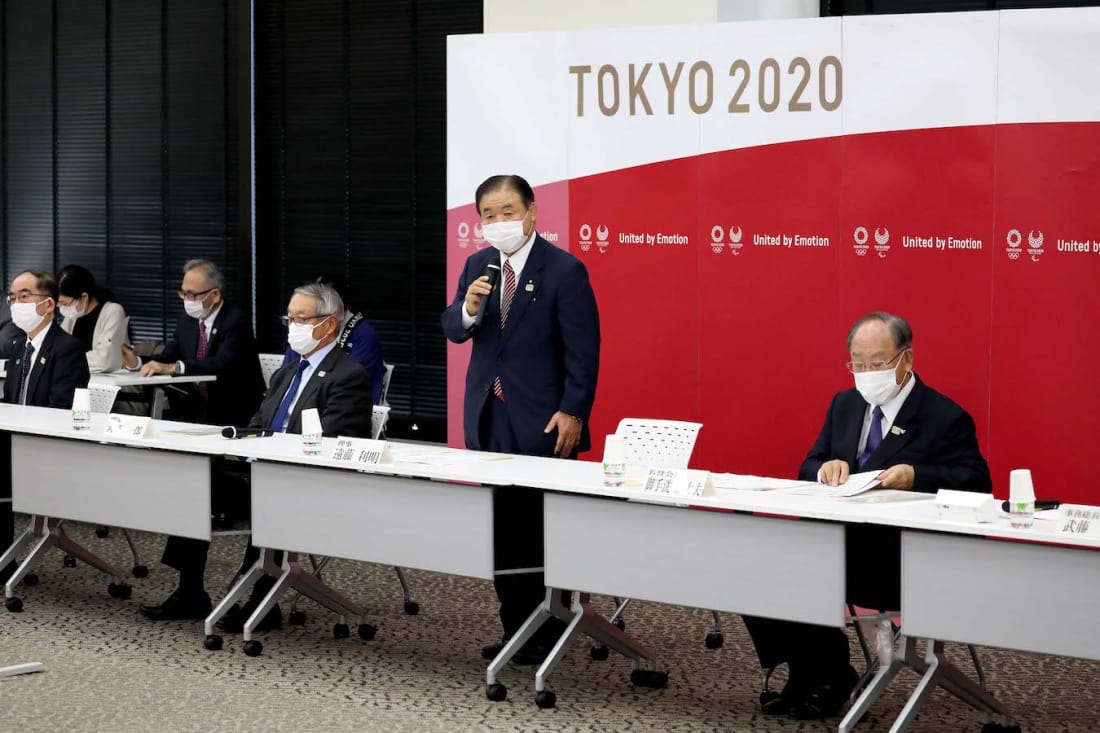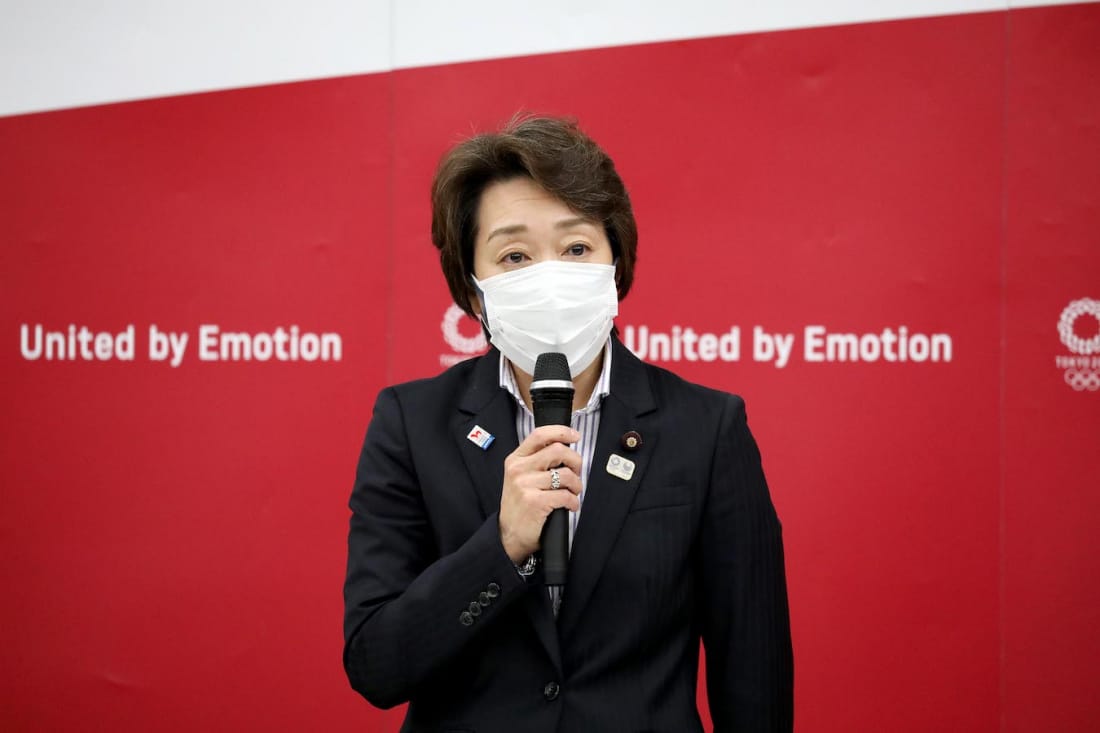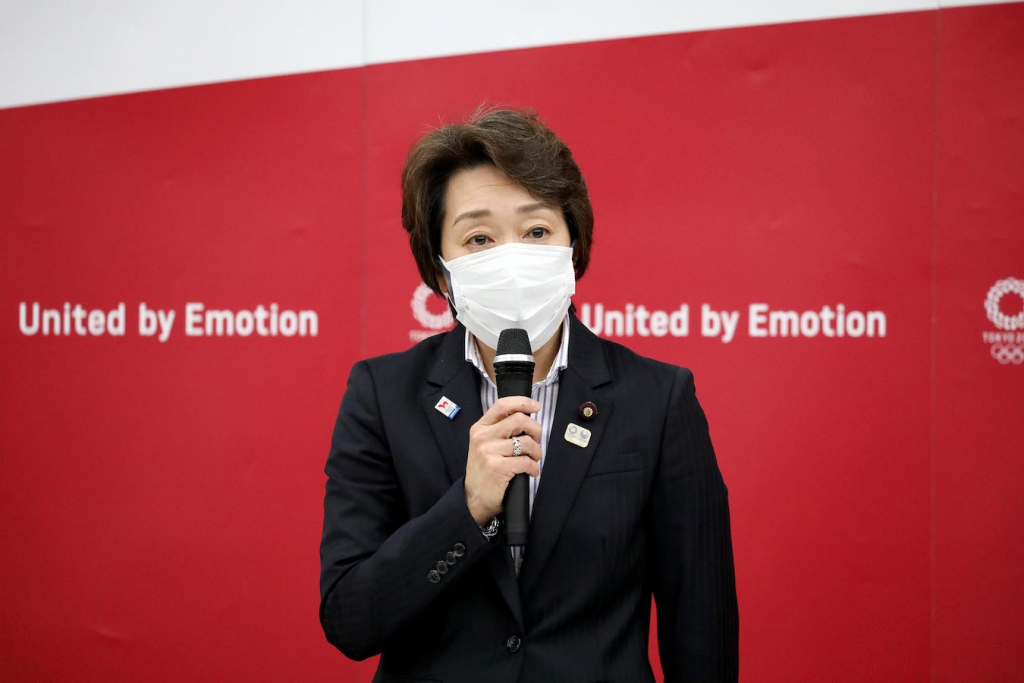All eyes in Japan will be on Seiko Hashimoto in the next five months leading up to the Tokyo 2020+ Olympics. Earlier today Hashimoto resigned from her Cabinet position as Minister of State for the Tokyo Olympic and Paralympic Games to accept her new role as president of the Tokyo 2020 Organizing Committee.
“To the success of the Tokyo Games, I hope I can make any contribution,” said Hashimoto through an English interpreter in her first remarks as president. “Five months from now the Tokyo Games are going to be convened. It has to be safe and secure Games. First and foremost we have to consider how we can control Covid-19.”
Tokyo 2020 has not been short on setbacks. Tokyo’s scorching summer temperatures forced the marathon event to relocate to Hokkaido. The ongoing Covid-19 pandemic postponed the Games to the summer of 2021, with many doubting that it will take place at all. Then Tokyo 2020 president Yoshiro Mori resigned a month before the Olympic torch relay is set to begin in Fukushima.
“This left us with immeasurable impact,” said Tokyo 2020 Vice Chair Toshiaki Endo earlier today during a press conference. “This has drawn extensive attention and therefore at the joint session we decided to set a selection panel to decide new president.”

Toshiaki Endo | Courtesy of Tokyo 2020
Yoshiro Mori Resigns Over Sexist Remarks
Mori, Japan’s former prime minister, resigned after recent sexist remarks. During a discussion about increasing the number of female members on the Tokyo 2020 committee, it was reported that Mori made the comment that the speaking time for female board members should be restricted because otherwise meetings would “take a lot of time.”
Mori will now be replaced by a woman.
Initially, Mori attempted to anoint his own successor – 84-year-old Saburo Kawabuchi, former head of Japan’s soccer and basketball leagues. However, the International Olympic Committee (IOC) vetoed this appointment after protest from Olympics volunteers, women policymakers and the general public. Current PM Suga encouraged an open selection process.

Courtesy of Tokyo 2020
Who Is Seiko Hashimoto?
These past few days it was highly anticipated that Hashimoto would be named the official successor. Hashimoto is a seven-time Olympian, competing four times as a speed skater in the Winter Games and three times in cycling in the Summer Games. She won bronze medal in the 1500m speed skating event in the 1992 Winter Olympics.
Entering politics, the Hokkaido native was first elected to the House of Councillors (Liberal Democratic Party) in 1995 and was re-elected for the fourth time in 2019. In addition to her role as Minister for the Tokyo Olympic and Paralympic Games, she served as Minister of State for Gender Equality and Minister in charge of Women’s Empowerment.
“I understand there is a gender parity-related factor”
“I understand there is a gender parity-related factor, and there was a council meeting jointly organized with the board to start up the gender promotion team,” said Hashimoto, referring to then organizing committee’s previous announcement to convene a project team to promote gender equality in society through sports. “This is something that requires actions to be put in place expeditiously and therefore by end of this month I would like to come out with a clearer plan for that organization, and then come up with concrete results.”
Koike Voices Support
In a released statement, Tokyo Governor Yuriko Koike supported Hashimoto’s appointment, citing her Olympic experience and her time working with the national government as minister. While not condemning Mori’s behavior in public, Koike did refuse to attend a meeting with Mori prior to his resignation, “as it wouldn’t send a positive message given the current situation.”
In today’s release, Koike said she is “convinced” that Hashimoto will “strive to achieve Unity in Diversity, one of the visions of the Tokyo 2020 Games.”
Hashimoto has a tall order in front of her. She must build trust with Olympic audiences at home and abroad that the Games can be safely held during the ongoing Covid-19 pandemic, and she must also prove that Japan can overcome its mistakes of the past.
Said Hashimoto, “I would like to create a society where we can live in harmony and I hope that will be the legacy to the future.”









